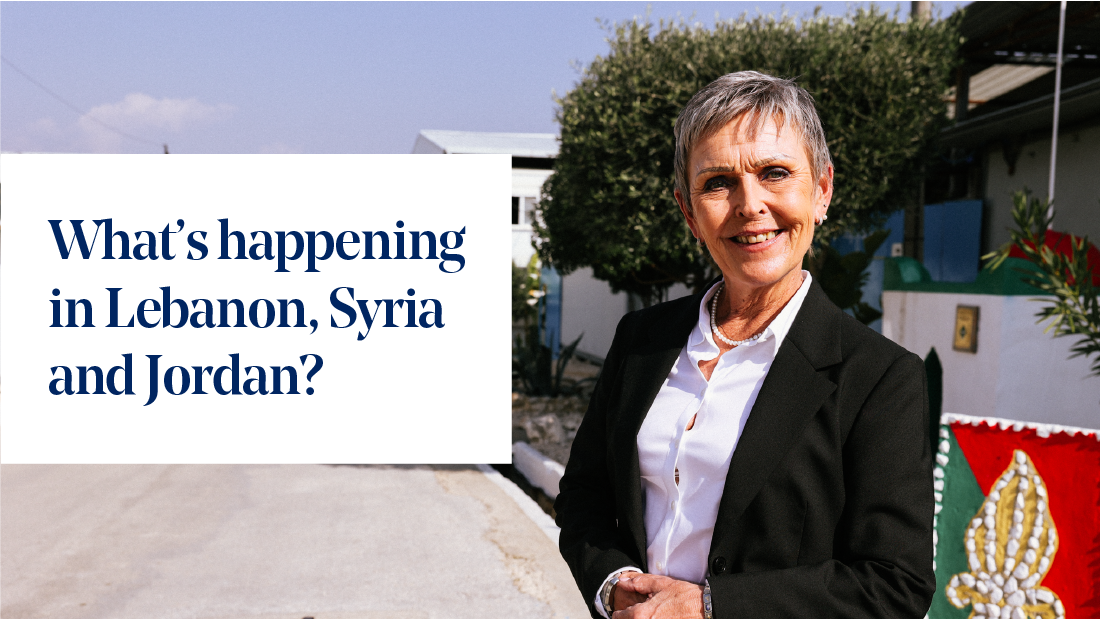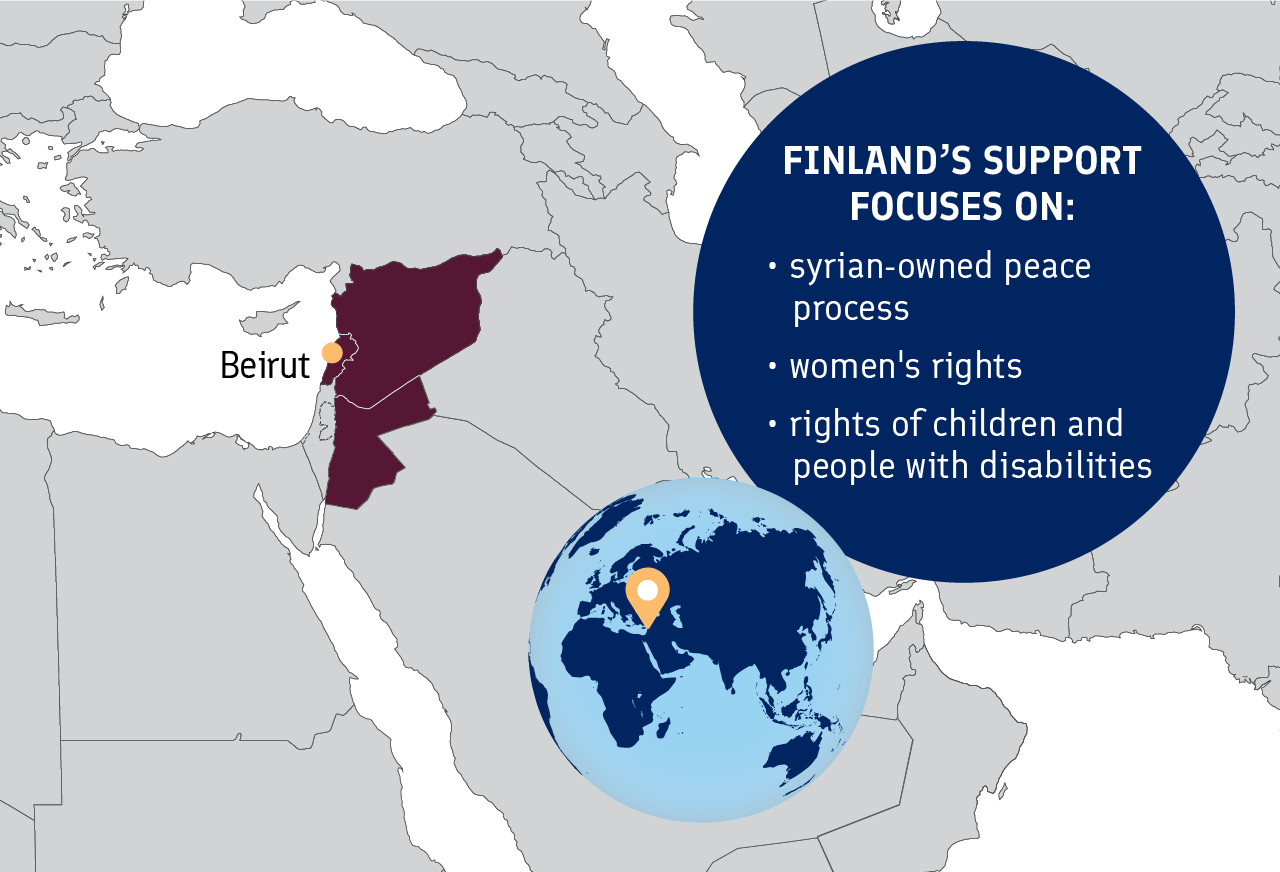Women and children are the hope of Middle East
Lebanon has a collapsed economy, no effective government and a high number of Syrian refugees. Despite these challenges, Finland’s Ambassador in Beirut Anne Meskanen sees a desire for change among women, children and young people in the region.
Women and children are the hope of Middle East

How would you describe the current situation and the biggest challenges in the region?
Lebanon’s economic crisis is unprecedented. In fact, it is one of the largest economic crises in world history. The country is in a power vacuum with no president or effective government.The gap between rich and poor is enormous. Lebanon houses 800,000 Syrian refugees, according to the UN Refugee Agency (UNCHR). However, Lebanese people are known for their persistence, and somehow they manage to lead a fairly normal life despite the enormous challenges.
The conflict in Syria started in 2011, and in certain regions it could be characterised as a frozen conflict. Syria is expecting a hard and cold winter. It will be particularly difficult for internally displaced people, who total 6.9 million in Syria, according to UNCHR. Refugees live in primitive tent villages without access to basic things, such as warm winter clothes. The crisis in Ukraine has eclipsed the one in the Middle East, and international appeals have managed to raise only a fraction of their targets. What is more, the war in Ukraine has significantly weakened food security in the region.
How is Finland supporting Lebanon, Syria and Jordan?
Finland has a very comprehensive approach to the situation in the whole region. Finland has channelled EUR 7.5 million to the crisis in Syria. Besides Syria, assistance is channelled to Jordan and Lebanon because they are receiving refugees. In addition, regional cooperation will be supported with EUR 3.5 million a year. Priority areas for Finland’s support are the Syrian-owned peace process, women’s rights, and the rights of children and people with disabilities. The conflict in Syria is still violent and active, and at its centre is the refugee issue caused by the war. We must support Syrian refugees, but we must also support Lebanon and Jordan who are receiving refugees from Syria. These countries do not have the capacity to receive such high numbers of refugees.
I am very glad that Finland supports the peace process, which is strongly linked to women’s rights. A key project is the Syrian Women’s Advisory Board (WAB), which was founded by the UN Special Envoy for Syria. Its core idea is to ensure Syrian women a voice in the peace process and in decision-making.
In addition, Lebanon and Jordan are implementing important projects under the UN resolution on Women, Peace and Security. The second Jordanian National Action Plan on Women, Peace and Security was launched only recently.
Lebanon’s challenge is that there has been no post-crisis management since the end of the years-long civil war. That is why grass-roots mediation projects focusing on women are so important. These projects emphasise the importance of dialogue for conflict resolution and peaceful coexistence.
Finland has received a great deal of praise for supporting UNICEF’s No Lost Generation education projects. A lot of children in Lebanon and Syria are not going to school. We do not want to see any more lost children and lost generations. The projects seek ways to help children go to school. They also support child protection services, educators and parents. In addition, Finland is supporting a disability project of the UN Development Programme (UNDP) in Syria.
How do you see the future of the region?
We must never lose hope. Lebanon has always had ups and downs. The locals have incredible resilience despite the economic crisis. As far as Syria is concerned, I do not think we can achieve sustainable peace any time soon. The conflict has become even worse in the northern regions of Syria close to the Turkish border. Jordan, on the other hand, is a relatively stable society, and it is not easy to throw it off balance. Its challenges include spread of Islamist radicalism, economic problems and a lack of reform policies.
What has uplifted you personally in the region?
The local people are hospitable, warm and cheerful, and they have an incredible capacity for survival despite difficult conditions. Women and young people especially have incredible energy and a desire for change. Some of these people have lived in refugee camps their whole lives. Finland is directing assistance to the poorest and most vulnerable people. I am particularly pleased that we are working to improve the quality of life for local people. I am delighted and enthusiastic about this opportunity.

In this series of articles, Finland’s ambassadors tell news from countries that are key partners of Finland’s development cooperation.
Text: Anna Palmén